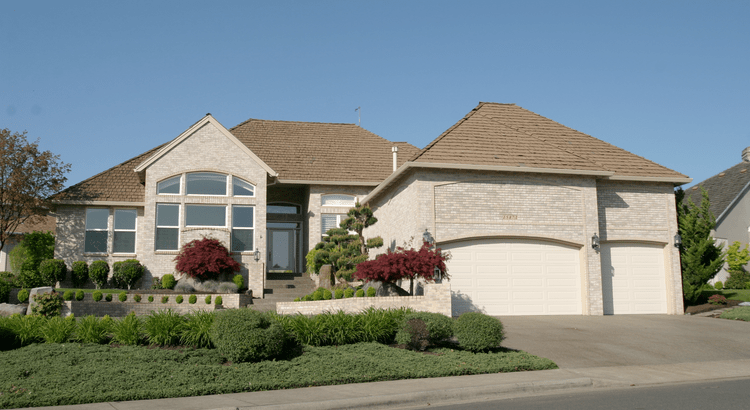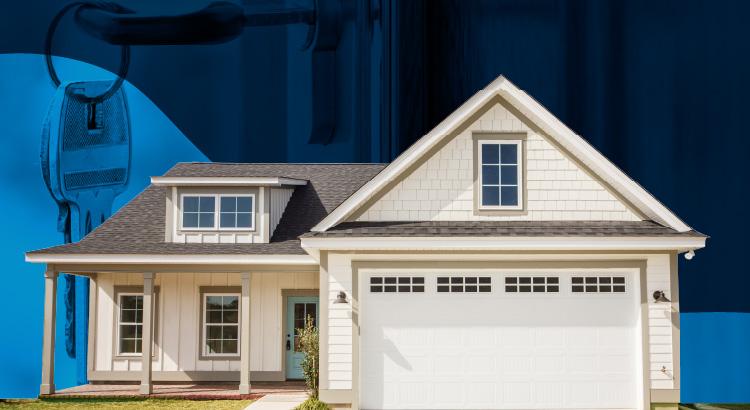Networking is not just an added bonus in Minnesota’s real estate industry; it’s a necessity. Did you know that approximately 70% of real estate transactions are influenced by professional connections? This staggering statistic underscores the importance of building strong relationships within this competitive market.
Local real estate professionals understand that a robust network opens doors to off-market listings, provides critical market insights, and helps establish credibility in the community. For instance, consider a seasoned realtor who, through a well-cultivated network, learns about a desirable property before it hits the market. This advantage can mean the difference between closing a deal or watching it slip away to a competitor.
In today’s digital age, traditional networking methods are being complemented by platforms like LinkedIn and social media, along with local real estate clubs and associations such as MNREC and the MN Real Estate Investors Association. These tools not only broaden the reach of networking efforts but also allow for consistent engagement with potential clients and partners.
However, successful networking isn’t just about collecting contacts; it involves strategic relationship-building and leveraging both in-person and virtual opportunities effectively. For example, industry professionals often utilize Customer Relationship Management (CRM) systems to track interactions, measure networking effectiveness, and follow up with connections in a timely manner.
As the digital landscape continues to evolve, Minnesota’s real estate professionals must adapt by integrating new technologies and trends into their networking strategies. This includes staying informed about current market conditions and utilizing online resources to foster relationships that can lead to lucrative opportunities.
By embracing these practices, real estate professionals can ensure they are not only part of the conversation but are also at the forefront of the industry.
Key Takeaways
- Almost 70% of real estate transactions hinge on networking, underscoring its significance in Minnesota’s competitive market.
- Local real estate clubs like MNREC offer vital platforms for connecting with industry experts and obtaining educational resources.
- Engaging in professional networking unveils off-market listings and investment opportunities not publicly accessible in Minnesota’s real estate landscape.
- Digital networking via social media platforms enables agents to reach wider audiences and maintain connections with property seekers throughout Minnesota.
- Actively participating in local professional organizations fosters valuable referral networks and provides access to specialized expertise within the state.
Why Networking Matters in Minnesota
In Minnesota’s dynamic real estate market, the importance of networking cannot be overstated—it’s often the key that unlocks doors to significant opportunities. Did you know that nearly 70% of real estate transactions are influenced by personal connections? This statistic highlights how essential a robust professional network is for success in a landscape that spans urban developments in the Twin Cities to the serene suburbs and rural properties of the state.
For real estate professionals, networking is not just a beneficial practice; it’s a vital strategy that can reveal off-market listings and investment opportunities that may otherwise go unnoticed. Establishing trust and credibility through consistent engagement with colleagues and industry peers is crucial. In a competitive market like Minnesota, where insider knowledge can mean the difference between a missed opportunity and a lucrative deal, maintaining strong connections can significantly enhance market access. Additionally, engaging with local real estate experts can provide insights that are particularly valuable in navigating this competitive landscape. Furthermore, utilizing a Guaranteed Offer can streamline the selling process, making it easier for real estate professionals to connect clients with potential buyers.
Participating in local professional organizations and attending industry events fosters invaluable relationships that can lead to essential market insights. For example, understanding current trends in commercial development or the shifting demands in residential housing can provide a competitive edge. Those who actively engage in networking events often find themselves in collaboration opportunities tailored to Minnesota’s unique market conditions, enabling them to stay ahead of the curve.
Moreover, the interconnected nature of Minnesota’s real estate sector means that networking creates vital support systems for navigating complex transactions. By leveraging professional networks, real estate agents can easily connect with specialists in related fields such as local financial institutions, law firms, and construction companies. These relationships are particularly valuable when coordinating multifaceted real estate projects or securing expert advice on various aspects of property transactions. Additionally, strong networking enhances access to local mortgage and financing options, ensuring that clients receive comprehensive support throughout their buying or selling journey.
Building Your Professional Network
In Minnesota’s competitive real estate landscape, building a strong professional network is not just beneficial—it’s essential for success. Did you know that nearly 85% of real estate transactions are influenced by personal connections? This statistic underlines the importance of cultivating relationships that can open doors to new opportunities and referrals.
Four primary channels form the bedrock of a powerful professional network in this industry: local networking events, professional associations, cross-industry connections, and strategic networking initiatives.
Local networking events create structured opportunities for relationship building. Organizations like the Minneapolis Network of Real Estate Investors and Minnesota Real Estate Club host regular gatherings at popular venues such as Hackamore Brewing Company and Steel Toe Brewing, typically on second Tuesdays and Thursdays of each month. Adhering to proper networking etiquette at these events is crucial; it helps foster genuine professional connections that can lead to fruitful collaborations.
Professional associations further amplify networking possibilities through memberships in entities like the National Association of REALTORS®. These associations offer exclusive resources, comprehensive directories, and invaluable industry-specific networking opportunities through local real estate boards. By regularly attending association events, you can significantly enhance your potential to forge lasting professional relationships with peers and industry leaders.
Cross-industry networking is another effective strategy, as it broadens your professional reach by connecting real estate professionals with complementary service providers—think mortgage lenders, attorneys, home inspectors, appraisers, and contractors. These connections can create robust support networks and referral systems that benefit all participants, ultimately leading to increased business opportunities.
Finally, strategic networking initiatives prioritize long-term relationship development through ongoing engagement and follow-up. This might involve implementing referral exchange programs, maintaining a dynamic social media presence, or attending educational events tailored to the industry. Some professionals even choose to host their own events, positioning themselves as thought leaders while expanding their influence within Minnesota’s real estate community. Additionally, leveraging the expertise of local real estate agents can enhance your networking efforts by providing insights into market dynamics and potential collaborations.
Digital Networking Strategies
In today’s fast-paced real estate market, the challenge of building meaningful connections can feel daunting. Did you know that nearly 75% of real estate professionals leverage social media for networking? This statistic underscores the critical importance of digital engagement in fostering relationships that enhance business growth. For Minnesota real estate professionals, adapting to these digital strategies isn’t just beneficial; it’s essential for staying relevant in a competitive landscape.
Social media platforms have emerged as invaluable tools for nurturing professional relationships. LinkedIn, Facebook, and Instagram allow you to share comprehensive market analyses, showcase property listings, and provide industry insights that resonate with a broader audience. By participating in specialized groups and engaging in discussions, you can position yourself as an expert while building connections with potential clients and fellow professionals. Additionally, leveraging complimentary assessments can provide valuable insights to sellers and buyers, enhancing your credibility. This is particularly important as accurate pricing can significantly influence a property’s marketability and sale.
To further establish your authority in the market, consider expanding your online presence through blogging, creating video content, or offering virtual property tours. Regularly sharing market updates and educational resources not only demonstrates your expertise but also enables you to reach audiences that may extend beyond traditional geographic limits. Virtual networking events and webinars are excellent opportunities to connect meaningfully with others, breaking down the barriers of location, which is particularly important in Minnesota’s diverse urban and rural markets.
Engaging with digital communities in industry forums and local online groups can significantly strengthen your market presence. By consistently contributing valuable insights and responding to inquiries, you enhance your credibility within specific market segments. Additionally, targeted advertising and personalized messaging can effectively reach the demographics that matter most to your business. Maintaining a professional profile across various platforms with consistent branding showcases your expertise and boosts visibility, making it easier for potential clients to find you. Moreover, understanding local market trends is crucial for setting competitive prices that attract buyers.
Incorporating these digital networking strategies into your business approach not only addresses the common pain points of connection and visibility but also empowers you to thrive in Minnesota’s evolving real estate landscape. Embracing digital engagement is no longer optional; it’s a vital component of successful networking in the modern world.
Measuring Networking Success
Success in real estate networking isn’t just about exchanging business cards or attending events; it’s about achieving measurable outcomes that propel business growth. In Minnesota’s fiercely competitive real estate landscape, professionals must focus on quantifiable metrics to assess their networking efficacy and adapt strategies as needed. Did you know that nearly 70% of real estate agents find their leads through networking? This statistic highlights the critical role networking plays in business success.
To effectively measure networking success, real estate professionals should consider several key indicators. The number of new contacts added serves as a foundational metric, while follow-up meetings scheduled indicate active engagement with those contacts. More importantly, direct business outcomes—such as referrals and closed deals—offer concrete proof of networking effectiveness. By analyzing conversion rates, agents can gauge how well they convert connections into actual clients, revealing the true value of their networking efforts. Additionally, understanding the importance of home inspections can enhance discussions and relationships with potential clients, showcasing expertise in the buying process.
Implementing a systematic approach to tracking networking progress can involve using Customer Relationship Management (CRM) systems. These tools allow Minnesota real estate professionals to meticulously record interactions and outcomes, enabling them to monitor network growth over time and evaluate the return on investment for various networking activities. Regularly analyzing these metrics empowers agents to make data-driven decisions about which events and relationships yield the most significant results.
To optimize networking outcomes, it’s essential to establish clear goals and consistently measure progress against these objectives. This includes tracking immediate metrics, such as potential sales opportunities, alongside long-term benefits like strategic partnerships and mentorship connections. For instance, if an agent attends a local real estate conference, they should not only note the number of new contacts made but also follow up to see how many translate into business deals. By methodically collecting and analyzing networking data, professionals can refine their strategies, prioritize high-yield activities, and cultivate more effective relationships within Minnesota’s real estate community.
In a world where every connection counts, understanding how to measure and maximize networking success is no longer optional—it’s essential for growth.
Overcoming Common Networking Challenges
Building strong business connections in Minnesota’s real estate market can feel daunting, especially for professionals navigating new territory or facing the common fear of networking. In fact, a significant percentage of new entrants in the industry cite anxiety as a major barrier to effective networking. If you’ve ever felt overwhelmed at an industry event, you’re not alone.
To combat these challenges, preparation is key. Before attending networking functions, take the time to craft and practice your elevator pitch and set clear objectives for what you want to achieve. This shifts the focus from merely collecting business cards to cultivating meaningful relationships grounded in trust and mutual benefit.
For instance, imagine you’re at a local real estate seminar. Instead of just introducing yourself and moving on, you could ask thoughtful questions about the projects others are working on, demonstrating genuine interest. This approach not only helps alleviate your own anxiety but also lays the groundwork for a more substantial connection.
Building relationships is not a one-off task but requires a systematic strategy centered on understanding the needs of others. By maintaining consistent contact, you can nurture these connections over time. Both in-person events and digital platforms offer valuable opportunities for engagement. Consider joining professional organizations or participating actively in online forums where you can share insights and learn from others in your field.
Adopting a proactive mindset can significantly enhance your networking efforts. Regularly attending industry events, diligently following up with contacts, and engaging in professional groups can establish your credibility in the Minnesota real estate community. Utilizing social media effectively can also help you stay connected and informed about industry trends, allowing you to contribute meaningfully to discussions.
Additionally, think strategically about how to leverage existing vendor relationships, celebrate important milestones with your network, and consistently provide value to your connections. This comprehensive approach not only fosters a robust network but also supports long-term career growth and success in Minnesota’s competitive real estate landscape.
Networking Tools and Resources
In the competitive landscape of Minnesota’s real estate market, the ability to forge and maintain robust professional connections can be a game-changer. Did you know that nearly 85% of jobs are filled through networking? This statistic underlines the critical importance of building relationships in any industry, but especially in real estate, where trust and reputation are paramount.
As Minnesota’s real estate professionals strive to broaden their networks, they can leverage a wealth of tools and resources designed to enhance their networking endeavors. Modern platforms such as LinkedIn and CREWbiz offer innovative digital solutions for connecting with industry peers, while traditional organizations provide structured environments for relationship cultivation and resource exchange.
Professional organizations are indispensable in facilitating access to extensive networking tools. For example, CREW Network connects over 5,000 members, creating opportunities for valuable interactions among real estate professionals. Additionally, the Minnesota Homeownership Center offers tailored resources and partnership opportunities that significantly bolster professional development and industry insight.
Here are key digital and in-person resources that Minnesota real estate professionals should consider:
- CREWbiz: This online platform provides access to member directories and a wealth of industry resources, making it easier to connect and collaborate.
- MNCAR Webinars: Educational webinars and virtual networking events hosted by MNCAR equip professionals with the latest industry knowledge and networking opportunities.
- Local Real Estate Organizations: These organizations often offer professional development programs designed to enhance skills and knowledge, fostering a stronger professional community.
- Digital Communication Tools: Utilizing platforms like email and messaging apps ensures that connections remain engaged and informed beyond in-person meetings.
The MNCAR Expo is another prime networking opportunity, attracting over 700 industry professionals. This event features educational programming paired with networking opportunities, allowing for meaningful exchanges and resource sharing. The combination of face-to-face interaction and digital follow-ups creates a comprehensive networking experience, ensuring that connections can continue to flourish.
For real estate professionals, balancing the use of digital tools with traditional networking methods is essential. Active participation in industry organizations not only provides access to diverse resources but also opens doors to collaborative opportunities that can significantly enhance one’s career trajectory. Embracing both approaches ensures a dynamic and effective networking strategyis vital to thriving in Minnesota’s real estate community.
Creating Lasting Professional Relationships
Cultivating lasting professional relationships is not just a nicety; it’s a necessity for success in Minnesota’s real estate industry. In fact, studies show that 70% of real estate professionals find their next client through referrals and existing relationships. This statistic underscores the importance of strategic relationship-building that goes beyond mere transactions.
To build trust in the Minnesota market, engage in specific practices that foster connection. Regular attendance at industry events and local organizations is vital. These gatherings allow you to meet peers and potential clients face-to-face, which is where authentic relationships flourish. Listening actively and engaging genuinely during these interactions can set you apart. For instance, sharing market insights or personal anecdotes can create a memorable connection that keeps you top of mind.
Expanding your professional network hinges on a commitment to ethical practices and transparency. Adhering to industry standards and maintaining confidentiality can significantly enhance your credibility. For example, being upfront about potential conflicts of interest not only builds trust but also aligns with Minnesota’s stringent state regulations.
Maintaining relationships requires regular engagement across various channels. Social media platforms like LinkedIn and Facebook are essential for staying in touch but don’t underestimate the power of in-person interactions at community events. Collaborating with mortgage brokers, appraisers, and contractors can lead to a robust referral network, enhancing your business’s reach. Additionally, participating in mentorship programs can be a game-changer, as they allow seasoned professionals to share their knowledge while helping newcomers find their footing.
Minnesota Real Estate Clubs
Are you struggling to find the right connections in the real estate world? In Minnesota, real estate clubs offer a dynamic solution for professionals eager to enhance their networks and expertise. With a robust scene that includes organizations like the Minnesota Real Estate Club (MNREC) and the Minnesota Real Estate Investors Association, members can engage in a variety of networking formats designed to foster valuable relationships and knowledge-sharing.
Consider this: attending just one monthly meeting could introduce you to an expert speaker or a potential investor partner—individuals who can significantly impact your business trajectory. The structured meetings, often held at venues such as the Ramada Plaza Minneapolis, feature not only insightful presentations but also deal-pitching sessions that encourage active participation.
Moreover, educational workshops and seminars focus on current market trends and investment strategies, equipping you with the tools to make informed decisions. Informal meetups at local hotspots further enhance relationship-building opportunities, allowing members to connect in a relaxed environment. Don’t overlook the power of online platforms and social media groups, which keep the conversation going and provide additional avenues for engagement beyond in-person events.
Clubs like the Real Freedom NOW REIA, meeting at the DoubleTree by Hilton in St Louis Park, illustrate the structured environments these organizations create for meaningful connections. However, success in these clubs hinges on active participation. Regular attendance, engaging in discussions, and following up with new contacts are essential strategies.
Each of these networking touchpoints—formal meetings, informal gatherings, and online interactions—serves to build a robust professional network. By leveraging these resources, you can gain insights from seasoned investors, explore partnership opportunities, and stay informed about market dynamics, ultimately addressing the common pain points faced by many in the real estate sector.
In today’s fast-paced environment, staying connected and informed is more important than ever. Embrace the opportunities presented by Minnesota’s real estate clubs and watch your professional network—and your business—thrive.
Future of Real Estate Networking
In today’s fast-paced real estate environment, the way professionals network is undergoing a radical transformation. Consider this: over 70% of real estate transactions now begin online. This statistic underscores a critical reality: if you’re not adapting to digital networking, you risk falling behind. The integration of cutting-edge technologies is not just a trend; it’s shaping how agents and clients interact, fundamentally altering the very fabric of relationship-building in this industry.
Emerging technologies like virtual reality (VR) and intelligent chat systems are revolutionizing the networking landscape. Imagine hosting a virtual property tour that allows potential buyers to explore a home from anywhere in the world or deploying automated customer service tools that provide instant responses to inquiries. These innovations streamline connections, enhance client engagement, and offer a competitive edge in managing extensive databases through sophisticated Customer Relationship Management (CRM) systems.
Moreover, forging strategic partnerships is more crucial than ever. Real estate professionals are leveraging collaborative online platforms to engage with lenders, contractors, and industry stakeholders, transcending traditional networking confines. Virtual meetings and online forums facilitate knowledge sharing and foster relationships that can lead to significant business growth. These platforms not only expand your network but also provide a wealth of resources to stay informed about market trends and best practices.
As marketing strategies become increasingly precise and data-driven, real estate professionals must adapt. Using search engine optimization (SEO) techniques and targeted social media advertising can significantly enhance visibility among specific demographics. Crafting specialized content, such as in-depth neighborhood guides and comprehensive market reports, positions you as an expert in your field and keeps your audience engaged.
In this digital era, personal branding and professional development are paramount. Maintaining a strong online presence through an updated website and active social media profiles is essential. Engaging in virtual training programs and coaching sessions ensures continuous skill enhancement, enabling you to navigate the ever-changing market landscape effectively. Setting SMART goals and regularly evaluating your strategies will help you stay agile and responsive to new networking opportunities.
Strengthen Your Real Estate Network With TheMLSonline
Networking is vital for success in Minnesota’s real estate scene, particularly in the dynamic Twin Cities market. Building relationships through various channels, including digital platforms and local organizations, enhances professionals’ opportunities for growth and success. As the real estate industry continues to evolve, the blend of personal connections with innovative technological tools will shape future networking strategies. TheMLSonline stands out as the premier choice for Minnesota Realtors and surrounding areas, offering tailored solutions to assist in navigating this ever-changing landscape.By engaging actively in networking efforts, real estate professionals can position themselves effectively for long-term achievements. The ability to harness both traditional methods and modern digital tools is essential for navigating the complexities of the market. Professionals in the industry can benefit from TheMLSonline’s expertise and resources, ensuring they remain competitive and connected. With a focus on collaboration and innovation, TheMLSonline is dedicated to helping Realtors thrive in Minnesota’s vibrant real estate market.








